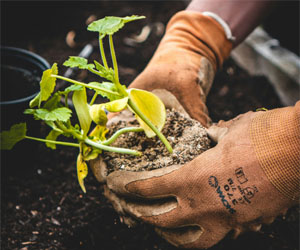


A Tapestry Of History, Diversity, And Tradition
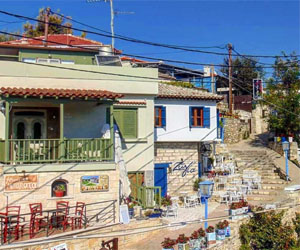
Mediterranean culture is a rich tapestry woven together by the peoples and countries that border the Mediterranean Sea. Stretching from Southern Europe to North Africa and the Middle East, this region has been a crossroads of civilizations for millennia, resulting in a diverse and fascinating cultural mosaic. Let's explore the key elements that define Mediterranean culture.
Historical Significance: The Mediterranean region is steeped in history. It was home to some of the world's most significant ancient civilizations, including the Greeks, Romans, Egyptians, and Phoenicians. Their legacies are evident in the architecture, art, and cultural practices that continue to shape the Mediterranean today. From the ruins of Rome to the iconic Parthenon in Athens, history is palpable at every turn.
Cuisine And Culinary Traditions: Mediterranean cuisine is renowned worldwide for its health benefits and delicious flavors. It reflects the region's emphasis on fresh, seasonal ingredients, such as olive oil, fruits, vegetables, legumes, and grains. Dishes vary from country to country, but common ingredients and culinary techniques, such as grilling, roasting, and the use of aromatic herbs, unite the Mediterranean palate. Meals are often shared with loved ones, emphasizing the social aspect of dining.
Art And Architecture: Mediterranean culture has produced some of the most stunning and enduring works of art and architecture. Greek and Roman architecture have left indelible marks on the region, and medieval influences can be seen in the cathedrals and fortresses of coastal towns. Iconic artistic traditions like mosaic work, painting, and pottery continue to flourish in Mediterranean communities.
Language Diversity: The Mediterranean region is a linguistic mosaic. Numerous languages, dialects, and scripts are spoken and written throughout the region, reflecting its rich cultural diversity. Arabic, Greek, Italian, Spanish, and Turkish are just a few of the languages spoken in Mediterranean countries.
Religious Diversity: The Mediterranean is a melting pot of religious traditions. Christianity, Islam, and Judaism all have deep roots in the region, resulting in a tapestry of religious practices and places of worship. The coexistence of multiple faiths is a hallmark of Mediterranean culture.
Festivals And Celebrations: Mediterranean culture is marked by a vibrant calendar of festivals and celebrations. From the colorful Carnival in Venice, Italy, to the exuberant Feria de Abril in Seville, Spain, these events celebrate music, dance, art, and, of course, food.
Family And Social Bonds: Family is the cornerstone of Mediterranean culture. Strong family bonds and close-knit communities are integral to daily life. Meals are often a time for family to gather, share stories, and celebrate their cultural heritage.
Sustainability And Environmental Stewardship: The Mediterranean region's natural beauty has inspired a cultural ethos of environmental conservation. The cultivation of olive groves, vineyards, and the sustainable fishing practices reflect this deep connection with the environment.
A Timeless Treasure Trove: Mediterranean culture is a treasure trove of history, tradition, and diversity. Its enduring influence on the world can be seen in art, architecture, cuisine, and customs. It is a living testament to the resilience and adaptability of the human spirit, shaped by centuries of interactions, conflicts, and collaborations.
Mediterranean culture is a testament to the enduring power of history, diversity, and tradition. As you explore the Mediterranean, you'll encounter a region that seamlessly blends the ancient with the contemporary, where culture is preserved and shared through the art of storytelling, the joy of feasting, and the warmth of community. It's a culture that welcomes and celebrates the richness of its past while embracing the promise of its future.
Savoring The Culinary Magic
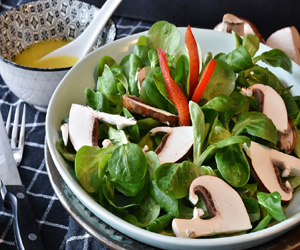 A Culinary Journey: Delightful dinners often take you on a culinary journey. They can transport you to different parts of the world, allowing you to savor the flavors of exotic cuisines. This culinary exploration is not limited to professional chefs; anyone with a passion for cooking can embark on this adventure. With the right ingredients, recipes, and a dash of curiosity, you can bring the world to your dinner table.
A Culinary Journey: Delightful dinners often take you on a culinary journey. They can transport you to different parts of the world, allowing you to savor the flavors of exotic cuisines. This culinary exploration is not limited to professional chefs; anyone with a passion for cooking can embark on this adventure. With the right ingredients, recipes, and a dash of curiosity, you can bring the world to your dinner table.
The Joy Of Sharing: Delightful dinners are not just about the food but also the company you share them with. Whether it's with family, friends, or that special someone, the act of sharing a meal fosters connection and strengthens bonds. It's a time to catch up, laugh, and create lasting memories.
Delightful dinners are a celebration of the culinary arts, an opportunity to create a dining experience that tantalizes the senses and warms the heart. They can be simple or extravagant, traditional or avant-garde, but what they all have in common is the power to transform an ordinary evening into a remarkable one.
Preserving Culinary Traditions Across Generations
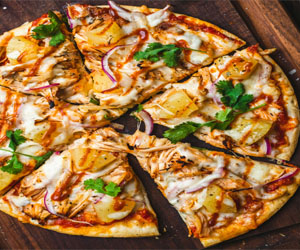 Timeless recipes have a universal appeal that transcends borders and cultures. While the specific dishes may differ from one region to another, the concept of time-honored cuisine is present everywhere. Whether it's the hearty, slow-cooked stews of Europe, the bold and flavorful curries of India, or the simple yet elegant dishes of Japan, every culture has its own set of timeless recipes that reflect its culinary heritage.
Timeless recipes have a universal appeal that transcends borders and cultures. While the specific dishes may differ from one region to another, the concept of time-honored cuisine is present everywhere. Whether it's the hearty, slow-cooked stews of Europe, the bold and flavorful curries of India, or the simple yet elegant dishes of Japan, every culture has its own set of timeless recipes that reflect its culinary heritage.
The Crucial Alchemy Behind Perfect Coffee
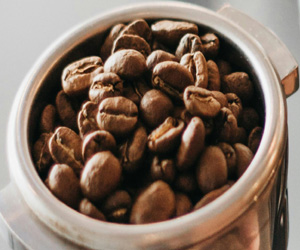 The Roasting Machine
The Roasting Machine
Roasting coffee demands specialized equipment known as a coffee roaster. These machines come in various sizes and configurations, from small batch roasters for artisanal micro-roasters to large industrial roasters for mass production. These roasters are equipped with advanced controls to monitor temperature, airflow, and other variables.
The Roasting Process
Drying Phase: The roasting process begins with the drying phase. In this initial stage, the green coffee beans lose moisture and begin to change color from green to yellow. The beans become more brittle, and a grassy smell is often noted.
First Crack: As the roasting temperature continues to rise, the beans undergo a significant change known as the first crack. This is the point at which the beans audibly crack, similar to popcorn. The sugars in the beans begin to caramelize, leading to the development of flavors and the release of carbon dioxide.
Development Phase: After the first crack, the beans enter the development phase. Here, the roaster must closely monitor the roast profile to achieve the desired flavor and aroma. Roasting times and temperatures are adjusted to balance acidity, body, and aroma.
The Aromatic Soul Of Mediterranean Cuisine
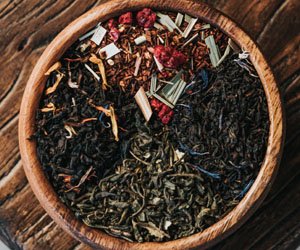 Basil: Basil is another herb synonymous with Mediterranean cuisine, particularly Italian dishes like pesto. This herb's sweet and slightly peppery notes add freshness to salads and brighten up sauces. Basil is a staple in the Mediterranean diet and is appreciated not only for its taste but also for its potential anti-inflammatory and antibacterial properties.
Basil: Basil is another herb synonymous with Mediterranean cuisine, particularly Italian dishes like pesto. This herb's sweet and slightly peppery notes add freshness to salads and brighten up sauces. Basil is a staple in the Mediterranean diet and is appreciated not only for its taste but also for its potential anti-inflammatory and antibacterial properties.
Rosemary: With its pine-like aroma and robust flavor, rosemary is a quintessential Mediterranean herb. It's often used in roasting meats and vegetables, infusing dishes with a delightful earthiness. Rosemary's association with improved memory and cognitive function makes it a symbol of both taste and health in Mediterranean cuisine.
Thyme: Thyme's aromatic and slightly minty notes make it a versatile herb in Mediterranean cooking. It's used in a wide range of dishes, from soups and stews to grilled seafood. Thyme is also valued for its antimicrobial properties and potential to boost the immune system.
Mint: Mint is another herb with a strong presence in Mediterranean cuisine. Its refreshing flavor complements salads, sauces, and desserts. Mint tea is a common beverage in the region, celebrated for its digestive and soothing qualities.